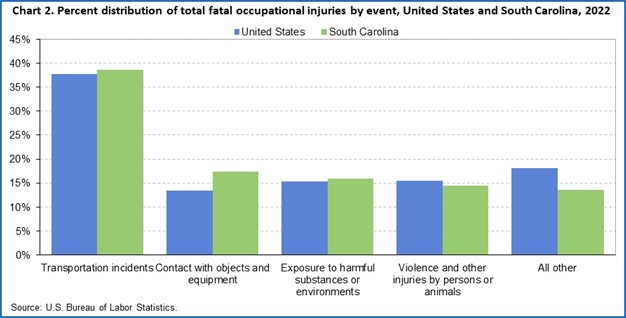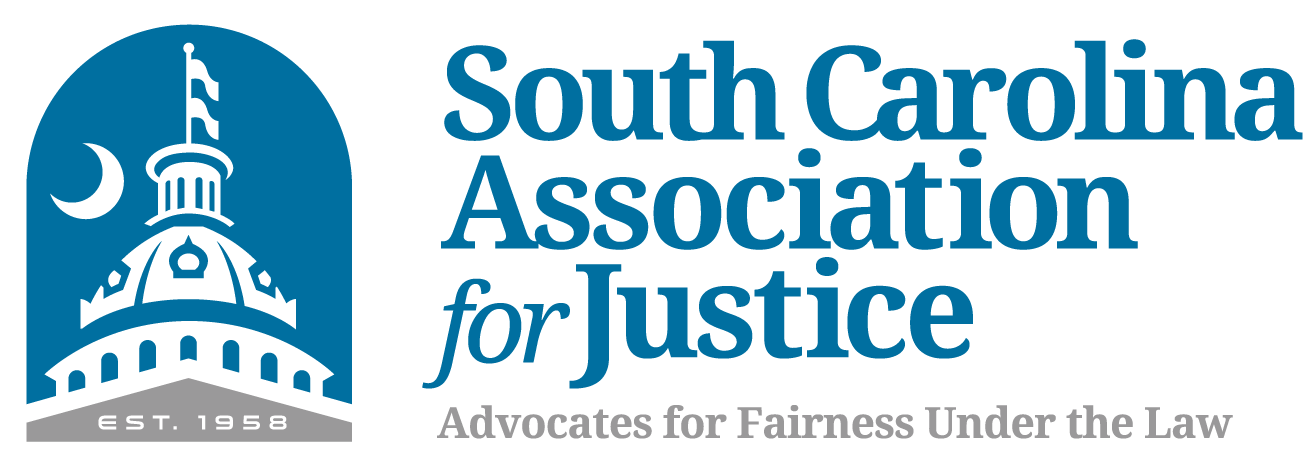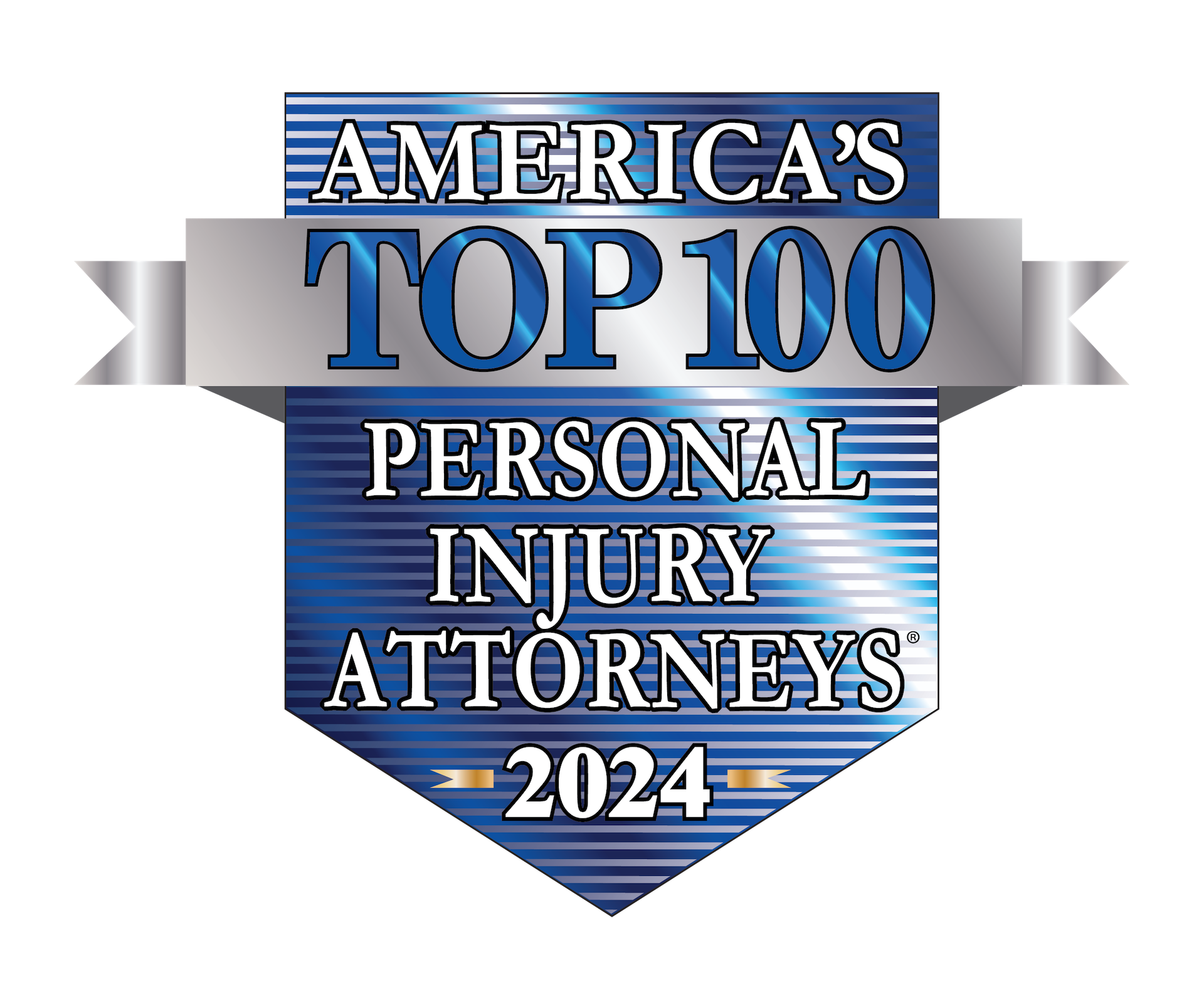South Carolina Workers’ Compensation Attorney Fights Denied Claims in South Carolina
Tough handling of claims and work injury cases throughout South Carolina
Were you injured at work? Are you looking for a South Carolina workers’ compensation attorney? Contact David L. Hood now! For more than 30 years, The Law Offices of David L. Hood has stood up for injured workers. We provide skilled, dogged help for denied claims. Including disputes over treatment plans, ratings issues, settlements and much more. If you are having trouble with the workers’ comp system, let us help you get what you deserve.
Workers’ comp is important and can pay for your medical care and replace most of your lost earnings while you are unable to work. But if your boss denies your claim, or the insurance company comes between you and your treating doctor, you may have to fight for what you deserve.
Call your South Carolina Workers’ Compensation Attorney David L. Hood now!
They did a great job. I feel they went above and beyond to help me.
RENEA, 2025/03/09
Our experience with The Law Offices of David Hood was extremely pleasant. Mr. Hood is very knowledgeable and helpful. Tracey Weiland was very helpful and patient with our special needs. They were there during a difficult process for us. Went out of their way to explain things and walk us through the legal process. Thanks so much. Highly recommend their practice.
brenda deamer, 2022/09/06
The thing that I love most about them is that they listened to me thoroughly and didn’t try to interrupt until I was finished. Everything was related to me in layman’s terms and they made sure to ask that if I had any questions about anything. The fact that David came down from Columbia just to speak with me in person spoke VOLUMES TO ME! Peter, Ali and everyone that had a hand in case were always very professional and I always knew what was going on with anything involving my case. They took my case when a prominent firm in my city stated that they couldn’t help me so I feel very BLESSED that I had them fighting for me. A GODSENT!
Mark McDomick, 2021/06/09
Table of Contents
- What is workers’ compensation?
- Causes of accidents in the workplace
- Who qualifies for workers’ compensation?
- Types of workers’ compensation benefits
- Dangerous workplaces
- Leading causes of workplace deaths
- How does workers’ comp work?
- Termination while on workers’ compensation
- Your rights under South Carolina’s law
- Unsafe working conditions
- Frequently asked questions
- Workers’ compensation statutory limits
- Common reasons for denying workers’ comp claims
- Workers’ compensation blogs
- Contact a workers’ compensation attorney near me
What is workers’ compensation?
Workers’ compensation is a form of insurance that provides financial assistance and medical care to employees who suffer injuries or illnesses directly related to their job. This system is a key component of employment law, designed to protect both employees and employers in the event of workplace accidents or health issues.
Workers’ compensation is a vital part of the employment landscape, providing essential protection for workers and employers alike. It helps ensure that employees who are injured or fall ill due to their job are not left to manage the consequences alone, promoting a safer and more equitable working environment.
Workers’ compensation laws in South Carolina
Most employers are required under South Carolina law to provide workers’ compensation to employees that are injured on the job. Workers’ compensation, also known as “workers’ comp” may provide for medical bills, 2/3’s of your average weekly wage while your written out of work by the Workers’ Comp doctor and a final settlement.
However, if you have been injured due to a third party (someone who is not your employer), then you may also be eligible to file a claim for compensation in addition to your workers’ comp benefits. If it’s too confusing, reach out to an experienced South Carolina workers compensation lawyer to help you understand workers’ compensation laws so that you get everything you’re entitled to.
Causes of accidents in the workplace
According to the most recent data from the National Safety Council (NSC), these are the most common causes of nonfatal workplace accidents:
Overexertion and bodily reaction – over one million cases.
These may include:
Non-impact injuries, like lifting, pushing, turning, holding, carrying and throwing.
Repetitive motion injuries from repeating a movement over and over again, injuring muscles, nerves, ligaments, and/or tendons.
Contact with objects and equipment – almost 800,000 cases.
These may include:
A moving object striking a worker.
A worker striking against an object (bumping into, stepping on, being pushed into an object).
A part of a worker’s body being pinched, compressed, or crushed in equipment.
Slips, trips and falls – more than 670,000 cases
Most common workplace injuries
Repetitive motion injuries: Examples – carpal tunnel syndrome or tendinitis.
Head Injuries: A traumatic brain injury (TBI) is a head wound that causes damage to the brain and disrupts its normal function. TBIs occur when the head suddenly hits an object or when something pierces the skull and enters the brain tissue.
These injuries can result in serious and long-lasting damage that affects your ability to perform everyday activities. Therefore, it is vital to hire a skilled brain injury lawyer to represent and protect your interests.
Back Injuries: Imagine lifting a heavy box the wrong way and feeling a sharp pain in your back. That’s a back injury, and it’s very common at workplaces, especially where people have to lift heavy stuff.
Broken Bones: Bones can break in all sorts of jobs, not just in construction or heavy industries. Even in an office, you could slip and break a wrist. Workers’ compensation makes sure that getting an X-ray, wearing a cast, and getting the bone fixed doesn’t cost the injured worker tons of money.
Who qualifies for workers’ compensation?
What does workers’ compensation cover? “As a general rule, businesses that regularly employ four or more employees within South Carolina are required to maintain workers’ compensation coverage. Part-time workers and family members are counted as employees.” Federal employees have their own system which is separate. (WCC.SC.gov)
Types of workers’ compensation benefits
Workers’ compensation benefits may be available to someone who suffers a work-related injury or occupational illness on the job. Most companies in South Carolina are required to provide their employees with workers’ compensation protection, especially if they have over four (4) full time employees.
As long as workers meet the eligibility requirements, they should begin receiving workers’ compensation benefits shortly after filing an accident report and getting approved. Some of the different types of benefits that may be available include:
- Death benefits – These are available to surviving family members of an individual who passes away due to a work-related accident.
- Temporary pay – These are wage replacement benefits. Usually about 2/3’s of the injured worker’s average weekly salary while they’re written out of work by the doctor.
- Medical benefits – Your employer’s workers’ comp insurance provider should cover the costs of your healthcare for your work injuries both now and possibly in the future.
- Settlement– At the end of your case, if you are awarded permanent disability, then you should get some money at the conclusion of your claim.
Dangerous workplaces
Employers should ensure a safe workspace for their employees. But some types of professions are more unsafe, especially in industrial towns and cities like Greenville, Greer and North Charleston, South Carolina.
Industrial accidents attorneys
Industrial accidents can injure people who work in manufacturing, energy and other fields that involve heavy equipment or dangerous substances.
Our lawyers and co-counsel represent South Carolina clients in claims from all types of industrial accidents, including:
- Equipment failures
- Toxic releases
- Fires and explosions
- Vehicle and offshore rig accidents
- Oil, gas and chemical spills
- Dropped or falling objects
- Dangerous floor conditions
Construction site accidents attorneys
Construction sites are dangerous places to work. In fact, one out of five worker deaths in the United States involves construction workers. Every ladder, walkway, platform or scaffold can injure a worker on the job.
Nearly every tool or machine on a job site can cause injury, often when safety procedures are not followed. Workers suffer injuries caused by:
- Falls from scaffolds or platforms
- Falling equipment such as hammers, saws, and other tools
- Burns and electric shock
- Exposure to harmful things, such as toxic chemicals
Leading causes of workplace deaths
The latest Fatal Occupational Injuries in South Carolina report by The U.S. Bureau of Labor Statistics shows the following are the top causes of workplace fatalities in our state:
- Transportation incidents. These accidents result in 51 fatal work injuries and account for 39% of all fatal workplace injuries in The Palmetto State.
- Contact with objects and equipment is the second-most frequent fatal work event with 23 fatalities.
- Exposure to harmful substances or environments resulted in 21 fatalities
- Violence and other injuries by persons or animals with 19 work-related deaths.

How does workers’ comp work?
After sustaining your workplace injury, where do you go to proceed with your workers’ compensation case?
While there’s a lot to sort out after an on-the-job injury, it’s important to not let the stress and anxiety overwhelm you and keep you from taking action. You need to act quickly if you want to have a chance at receiving compensation for your medical bills and lost wages by filing a workers’ compensation claim. We have seen too many cases where injured workers wait too long to get their workers’ compensation claim started and then miss out on benefits they deserve.
To access essential benefits, such as medical treatment and wage replacement, you must file your claim correctly and in a timely manner. At that point, you should be able to concentrate on your health.
How to file a workers’ comp claim
What is the process of workers’ compensation claim?
- Report your injury – The first and most important thing you need to do if you get hurt on the job is notify someone in a supervisory role (manager, supervisor, or on-site nurse) about the injury as soon as possible. If you have a serious injury that requires emergency care, get medical care first, then notify your employer as soon as possible. After an injury, you have a responsibility to tell your employer about it immediately (or within the soonest reasonable time frame if you’re unable to notify them right away). Not reporting your workers’ comp injury within 90 days of the accident could keep you from getting benefits – so don’t miss that deadline, do it now!
- Seek medical attention – After you report your injury, your employer should provide you with details on how you can seek medical attention. Some employers may require that you seek your medical care from a specific provider or workers’ comp health care network. If this is the case, make sure to comply with these requirements. Don’t forget to tell the doctor at the outset that your injury occurred while at work.
- File your workers’ compensation claim – It is not your responsibility to file the claim with the insurance company; your employer should do that. However, employers often neglect this obligation, making it difficult or impossible for workers to access benefits. So, the law does allow you to file a claim on your own behalf. Complete a Form 50 (workplace injury claim) or [after a workplace death, a family member needs to file] Form 52 (workplace death claim) and submit it to the Commission prior to the 2- year deadline. There is no charge for filing a claim. The forms are available for download on the South Carolina Workers’ Compensation Commission website. (WCC.SC.gov)
- Contact your South Carolina Workers’ Compensation attorney, David L. Hood at 843-491-6025.
Termination while on workers’ compensation
An employer shouldn’t fire you for filing a workers’ compensation claim, but we all know how bosses and companies can be in South Carolina.
Section 41-1-80 of South Carolina Code of Laws Unannotated states, “No employer may discharge or demote any employee because the employee has instituted or caused to be instituted, in good faith, any proceeding under the South Carolina Workers’ Compensation Law…or has testified or is about to testify in any such proceeding.
Any employer who violates any provision of this section is liable in a civil action for lost wages suffered by an employee as a result of the violation, and an employee discharged or demoted in violation of this section is entitled to be reinstated to his former position. The burden of proof is upon the employee.”
Your rights under South Carolina’s law
Workers’ comp is a no-fault insurance that protects workers who suffer on the job injuries, but shields their bosses from being liable. Injured workers may be able to get a range of things, such as:
- Medical care
- Partial wages
- Partial and total disability, and comp for scarring
- A final settlement
- Death payment
Access should be simple. The worker reports the injury to the employer and files a claim with the insurance carrier. The employer must report the incident within 10 days to the South Carolina Workers’ Comp Commission, which follows the progress of the claim. However, the real process can be much harder.
Unsafe Working Conditions
An unsafe workplace environment is considered any situation where a worker can’t perform their required job duties due to the presence of dangerous physical conditions. For example, defective equipment, exposed wires, toxic materials, asbestos contamination, and lack of personal protective equipment (PPE) are common areas where unsafe conditions pose a danger to employees.
Under the South Carolina Occupational Safety and Health Act, The State is supposed to enforce occupational safety and health standards in all workplaces in South Carolina. However, longshoring, shipbuilding, ship repairing and shipbreaking operations covered by Longshoremen and Harbor Workers’ Compensation Act, are still under federal jurisdiction.
Employers are supposed to furnish employees with a place of employment which is free from recognized hazards that are causing, or likely to cause, death or physical harm.
The Occupational Safety and Health Administration (OSHA) aims to establish safe work environments by setting standards for workplace hazards, including:
- Physical hazards like noise, radiation, and extreme temperatures,
- Ergonomic hazards like heavy lifting and repetitive motions,
- Biological hazards like mold and pests,
- Chemical and dust hazards like pesticides and asbestos,
- Safety hazards like slips and falls.
SC OSHA is located in Columbia and is part of the South Carolina Department of Labor, Licensing, and Regulation, SC OSHA has also adopted state plan standards for:
- Spray finishing using flammable, combustible, and other hazardous materials,
- Respiratory protection,
- Powered industrial trucks,
- Excavations,
- General safety and health requirements.
Frequently Asked Questions:
When should you file a Workers' Compensation Claim?
Immediately! If you wait, your employer could claim the injury happened at home, and/or outside of work hours.
What are the Workers' Compensation maximum rates?
Two-thirds of your average weekly wage. But, it's capped at $963.37 per week (in 2022).
Workers’ compensation statutory limits
You must report the work-related injury to your employer within 90 days of the accident. Otherwise, you may be disqualified from receiving workers’ comp benefits.
Form 50 or 52 MUST be submitted to the South Carolina Workers’ Compensation Commissioner within 2 years after the date of the accident.
Common reasons for denying workers’ comp claims
Workers are covered for all injuries that occur “in the course of employment” and “arise out of employment.” Courts have (in general) found those phrases to mean that the injury occurred while the worker was doing something that helped the boss. However, bosses often deny that an injury was work related because:
- The injury is due to the employee’s willful act, such as horseplay.
- It was an act of self-harm.
- The accident was because the employee was drunk from alcohol or on illegal drugs.
- The injury was the result of an attack for personal reasons.
Whether your injury qualifies as work related depends on the facts and the context. An accident that occurs at a company party or picnic can be work related if the facts show that it was not strictly social. A skilled workers’ comp lawyer can help you build a forceful case to appeal your claim and get you what you deserve.
Contact your South Carolina Workers’ Compensation Attorney David L. Hood.
Worker’s Compensation blogs:
Sleep Deprivation and Workplace Safety
Work-Related Carpal Tunnel Syndrome
Workplace Fatalities in South Carolina
How to Calculate Workers’ Comp in South Carolina
Most Dangerous Job in the US
Jobs with High Cancer Risk
Contact a Workers’ Compensation Attorney Near Me Today
Contact a South Carolina workers’ compensation attorney to fight for you today!
South Carolina worker’s compensation attorney, David Hood and his team are here to help you and your family. Because they work to provide the legal knowhow needed to appeal your claims and resolve issues that block access to your benefits. To schedule a free consult, call us at 843-491-6025. You can also reach any of our statewide locations by email, text or chat, 24/7. Remember, there are deadlines, so take action now to protect yourself!





